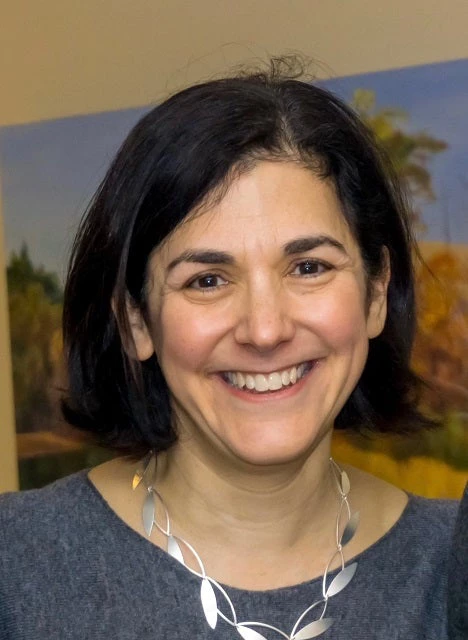 Protéger et développer le capital humain de l’Afrique
Protéger et développer le capital humain de l’Afrique
When 24-year-old Niamoye Dicko decided to take classes at the Missabougou Vocational Training Center in Mali in 2020, she already had a Baccalaureate degree, a Master’s degree in private law, and bachelor’s degree in education and motor skills. But job opportunities still eluded her.
One day, her mother, who is a teacher, heard about a youth skills training program in the area and told Niamoye. The program would soon become a gamechanger in the young woman’s journey.
“When I became aware of this training at the Center, I immediately seized the opportunity. I am currently the only female to take this (interior design) course.”
Launched by the Malian government in 2014 and financed by the World Bank’s International Development Association (IDA), the Skills Development and Youth Employment Project (PROCEJ) was designed to improve and promote young entrepreneurship and encourage private sector businesses to create jobs that employ young people. Under this project, the Missabougou Vocational Training Center supports education and training for employability in agro-food, construction, and mining. PROCEJ also supports nine training centers and has so far trained over 42,000 students—a third of whom are young women.
Amid the COVID-19 crisis, we are seeing that early investments and commitments in countries’ human capital development have helped protect people during this time of crisis. As countries struggle to contain the virus, save lives, and rebuild their economies, the pandemic has plunged Sub-Saharan Africa into its first recession in over 25 years, pushing up to 40 million people into extreme poverty. It has erased, at a minimum, five years of progress in poverty reduction. Countries, especially those experiencing fragility, conflict, and violence, are seeing their worst recession in decades. Food and nutrition insecurity is on the rise and gender gaps and economic inequalities are worsening.
Despite these setbacks, governments, development partners and other key stakeholders have been resilient in their efforts to protect and preserve Africa’s human capital while mitigating the economic fallout from the pandemic. Bolstered by support from IDA, the World Bank is working with country governments, to scale-up and reweave social safety net programs during the pandemic, with more than $4 billion in new financing to address chronic poverty through cash transfers and support for those who have lost their livelihoods. For example, in Niger, we are supporting government’s efforts to build the resilience of households to climate change through diversifying income sources and encouraging savings.
The flagship Sahel Women's Empowerment and Demographic Dividend (SWEDD) project—also financed by IDA—is focusing on helping adolescents return to school and preventing gender-based violence. In Benin, 23,000 adolescent schoolgirls have received backpacks with an integrated solar panel that provides light they can use to study after dark. Our projects are ensuring food security by supporting farmers to expand agricultural production to meet the needs of local communities and sustain food supply chains. In Côte d’Ivoire, 320,000 farmers have received income support and 5,000 jobs have been protected in local processing units. We are supporting governments in scaling-up digital technology for service delivery through telemedicine, virtual learning, and mobile cash transfers. We are also partnering with mobile providers to increase access to digital content by removing fees, creating public internet hot spots, and distributing SIM cards. This has made data access to education content possible to students.
When we launched the Africa Human Capital Plan in 2019 as part of the World Bank’s Human Capital Project, we never imagined that the greatest global crisis of our lifetimes would be around the corner. What we have learned in the past two years is that investing in people is more important now than ever. Through seven innovative gamechangers, the Africa HCP is providing a framework and momentum for COVID-19 relief, restructuring, and recovery efforts to help African countries and governments prioritize investments in people to build a more sustainable, inclusive, and resilient future. Lessons learned from COVID-19 show that boosting comprehensive multisectoral collaborations and partnerships between public and private sector actors creates economies that are more sustainable, inclusive, and resilient against future shocks and crises.
I am struck by Niamoye’s resilience and determination—against all odds—to pursue her dream of being an interior designer. The Missabougou Vocational Training Center, which transformed her career path, has now been selected by the West African Economic and Monetary Union as a pilot for testing the community college model within the Union’s member countries. The project has become a powerful case study of how investments in youth skills development can pay off during a time of crisis.
Now, more than ever, African countries need stronger and committed support from all their partners. IDA has long been Africa’s reliable long-term partner. IDA has helped African countries to be better prepared to respond to crises and emergencies and protect their human capital.
Today, looking ahead to the IDA20 replenishment, my colleagues and I are even more energized to implement lessons learned from scaling-up investments and activities in human capital development. Providing access to life-saving vaccines is a priority, as is expanding coverage of social safety nets, improving learning outcomes for all students, keeping girls in school until they graduate, building strong health service delivery systems, and so much more.
An African proverb says: “the sun does not forget a village just because it is small.” We cannot forget Niamoye’s Mali or the other 38 Africa IDA countries that need continued long-term support to tackle these larger-than-life challenges—by investing in strong and pandemic-ready health systems, addressing learning poverty and building back better and greener. IDA is strongly and uniquely positioned to deliver on this vision.
The blog is part of a series on ways to ensure a resilient recovery from COVID-19 in the world’s most vulnerable countries. For the latest, follow @WBG_IDA and #IDAworks.


Join the Conversation